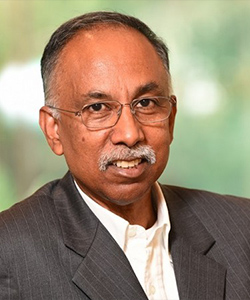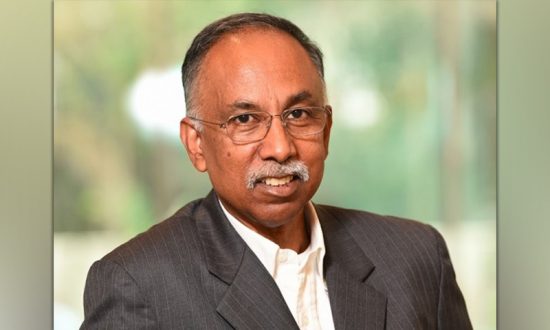S.D. Shibulal, co-founded Infosys in 1981 and led the company in different capacities since its inception. He was a member of the Board of Infosys and was its CEO & MD between 2011 and 2014. Amongst his innumerable achievements during his time at Infosys, he is especially proud of being instrumental in creating the Global Delivery Model. The model established a new standard for delivery of outsourced IT services. He serves on several global leadership forums and advisory boards.
Driven by his passion for Education and for developing the leaders managing the K-12 Government schools across India, Shibulal incorporated ShikshaLokam, an Education Leadership Development platform in 2016. Now active in multiple States, ShikshaLokam offers open-source technology capabilities and learning and management resources to more than 300,000 leaders, in partnership with State Governments and leading Civil Society Organizations.
In a conversation with Higher Education Digest, Shibulal talks about the best practices in ECCE (Early Childhood Care and Education), importance of Foundational Literacy and Numeracy, his vision for the future of ShikshaLokam, and much more.
What would be the potential impact of NEP on the Indian education system?
With the New Education policy 2020, many changes have been introduced in the academic structure of India starting from the school to college level. One of the sweeping reforms is the transition from the decades-old 10+2 format to the 5+3+3+4 structure. The divisions of this structure correspond to the age groups 3-8, 8-11, 11-14 and 14-18, and brings already existing playschools within the ambit of ‘formal education’. This new design not only proposes to divide the school structures into the cognitive developmental stages of children -– early childhood, school years, and secondary stage — but also gives rise to a National Curricular and Pedagogical Framework for Early Childhood Care and Education to be designed and developed by NCERT. Also, the policy has revised the ages at which schooling is mandatory from 6-14 years, to 3-18 years.
An equal emphasis has been given to mother tongue education. The policy emphasises that a child’s mother tongue should be the medium of instruction as studies suggest that children learn and grasp concepts more quickly in their mother tongue. The National Education Policy is expected to bring a positive and long-lasting impact on India’s higher education. The fact that foreign universities will be allowed to open campuses in India is a commendable initiative by the government. This will help Indian students experience global standards of education without traveling abroad. The policy of introducing multi-disciplinary institutes will lead to a renewed focus on neglected fields such as arts, humanities and history. These forms of education will help students to learn and grow holistically, and equip them with a wider and more adaptable knowledge base.
The introduction of a single common entrance test is another positive step which will reduce the stress and pressure of competitive exams by reducing their number. It will also ensure a level playing ground for all student applicants going forward. Establishing an Academic Bank of Credit (ABC) is definitely a robust idea to store the academic credits that students earn from taking courses from various recognized higher education institutions. A student can earn scores by completing a course and these will be credited to their ABC account. They can then transfer these credits if they decide to switch colleges. If they drop out for some reason, these credits will remain intact, allowing them to come back years later and pick up from where they had left off.
How is ShikshaLokam leveraging its platform to demystify the NEP 2020 and the opportunities that come with it?
The NEP 2020 is a key directional document. It highlights many important aspects and recommends important shifts, like including Early Childhood Care and Education (ECCE) in the structure of school education and focusing on the flexibility of subjects. These shifts will require structural and process changes as well as redesign. Successful implementation of such reforms requires strong leadership capacity and clarity of objectives on the ground. ShikshaLokam has been conceptualised and created as an Education Leadership Platform to facilitate this. Its open-source capabilities can be used as an infrastructure to roll out any large scale programs, including capacity building of education leaders. We believe in creating an innovation ecosystem and we have been nurturing an ever-increasing community of NGOs and CSOs. Since September 2020, we have been collaborating with them to unpack the NEP and its nuances. We hosted ‘The unbundle Series’ with an objective to create a space for constant dialogues and discussions. Our team has also published handbooks / field books to enable implementation of aspects of the NEP.
What are the best practices in ECCE (Early Childhood Care and Education) and what are the challenges we foresee for the implementation of NEP?
There are several universally accepted benchmarks for high quality ECCE. There are world-class curriculum and delivery methods that clearly establish how during early formative years, it is important to focus on activity-based learning, instead of a structured formal focus on literacy and numeracy. Having said that, all best practices need to be localised and contextualised before implementation in schools. In our country, a large proportion of children still access Aanganwadi centres for ECCE.
Delivery of meaningful ECCE is also impossible without well-trained teachers. We will need to strongly focus on pre-service and in-service capacity development of early childhood educators. Sustained and focused efforts will be needed to deal with other issues like the design and supply of teaching-learning materials (TLM) kits, the provision of capacity building and technical assistance, the conversion of all Anganwadi Centers into learning centers and infrastructural development.
What is the relevance and importance of Foundational Literacy and Numeracy?
Foundational Literacy and Numeracy (FLN) is critical. It is disheartening for us that even after spending 8 years of schooling, many children don’t gain even foundational literacy and numeracy skills. There is a reason that they are called foundational. Like they say, “till age 6, you learn to read, but after that you read to learn”. The learning gap keeps increasing for a child who does not gain FLN by the right age. As they go up to higher grades, these children find the learning process increasingly irrelevant and incomprehensible, and are consequently likely to drop out. It is good that the NEP 2020 has given clear focus on FLN as a mission. We must work towards this. However, as a caution, I’d like to mention that non-cognitive skills are also important and there should be a simultaneous focus on that along with FLN.
Tell us about ShikshaLokam’s commitment to continue bridging the gaps in capacity building and leadership development in the education sector. What has been the impact seen so far?
ShikshaLokam is a societal platform aimed at bringing systemic change in India’s K-12 education system mainly through leadership development. It is completely free of cost and is accessible to all. It has a three-layered structure, with digital infrastructure at its core.
ShikshaLokam provides open-source technological capabilities and learning resources to those on the platform, and offers an opportunity to collaborate, co-create and find solutions for transforming India’s K-12 education through systemic change. Keeping the societal platform construct, ShikshaLokam works towards distributing the ability to solve the gaps that exist in the education leadership development space and improving the agency of actors in the ecosystem to drive large scale educational change programmes.
One of the major benefits of collaboration and co-creation is that it saves a lot of time, because once an idea is invented, it can be applied to other places. Though there may be a need to localise and contextualise the idea, there is no need to reinvent it. Another benefit is that the openness of the platform enables what happens in one location to be seen in all other parts of the country.
Education leadership plays a crucial role in the transformation of the system itself. There are a number of leaders within the education sector who climb up the management structure using the experience they have garnered over many years. However, we must address their need for learning opportunities to keep themselves updated on current processes and trends within the education space. It is imperative to provide structured and reliable avenues to develop education leadership to sustain improvements in the Indian education system.
ShikshaLokam has come a long way since its inception in 2017. Initially, the growth was slow but in the last 2 years, we have found our ground. Today we have over 3.2 lakh users and clock about 400-700 transactions per second. Every day, about 1,000 observations are made on the platform and we indirectly touch about 15 million school-going children, which is about 5% of the school-going population of the country. We are currently present in 19 states across the country. There has been very good progress in our reach and impact across the states we’re currently working in, including those of Delhi, Punjab, Andhra, Goa, to name a few.
What is your vision for the future of ShikshaLokam?
I started ShikshaLokam with the singular mission of enabling access to leadership development opportunities to 100% of education leaders in the country. I have always believed that leaders are the cornerstone of any transformation process. As such, we will continue to engage with Samaaj (NGOs, CSOS) and the Sarkaar (government and institutions) to co-create these wonderful change programs aimed at systemic transformation and capacity development of leaders.
More about S.D. Shibulal

In 2014, Shibu co-founded Axilor Ventures – a new generation platform to improve odds of success of entrepreneurs. With three distinct programmes: accelerator, scale-up and early stage funding, Axilor provides infrastructure, mentoring and capital for high-impact, India –focussed start-ups (in the areas of e-commerce, Healthcare and Cleantech).
Shibu serves on the board of several organisations promoting education. He is Trustee of the Infosys Science Foundation, a not-for-profit trust; a Member of the Board of Trustees, Boston University and a Member of the Board of Managers of Haverford College, Philadelphia. He is also the Chairman of the High Power Digital Advisory Committee (HPDAC) of Kerala.




